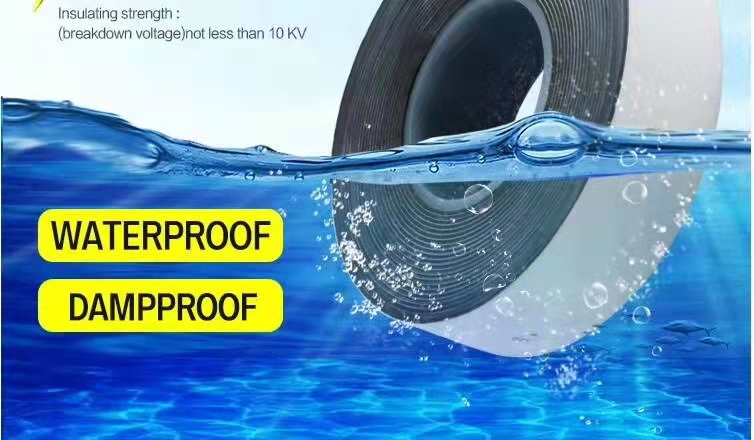The Importance of Cloth Tape in Electrical Applications
Cloth tape, often referred to as fabric tape or insulating cloth tape, is a versatile product widely used in various electrical applications. Its unique properties and characteristics make it an essential tool for electricians, technicians, and DIY enthusiasts alike. This article will explore the benefits, applications, and factors to consider when using cloth tape for electrical purposes.
What is Cloth Tape?
Cloth tape is a type of adhesive tape made from a woven fabric material, typically coated with a pressure-sensitive adhesive. The fabric backing gives it a certain level of durability and flexibility, while the adhesive provides excellent adhesion to a variety of surfaces. Cloth tape is available in various widths, colors, and thicknesses, making it suitable for numerous applications.
Benefits of Cloth Tape in Electrical Applications
1. Insulation Properties One of the primary uses of cloth tape in electrical work is insulation. Its dielectric strength helps to prevent electrical current from passing through unintended paths, thereby reducing the risk of shorts and electrical failures.
2. Durability The fabric material used in cloth tape is remarkably strong and resistant to tears and abrasions. This durability extends the life of the tape and ensures reliable performance in high-stress environments.
3. Adaptability Cloth tape can conform to uneven surfaces and mold around corners and edges. This adaptability ensures a secure fit, making it ideal for bundling wires, repairing cables, and providing added insulation.
4. Ease of Use Unlike some other insulating materials, cloth tape is easy to tear by hand and apply. This feature saves time during installations and repairs, making it a go-to choice for professionals and hobbyists alike.
5. Temperature Resistance Many cloth tapes are designed to withstand high temperatures, making them suitable for use in environments where heat is a factor, such as around motors and electrical panels.
6. Aesthetic Variety Available in various colors, cloth tape can be used not only for functionality but also for organization and aesthetics. Color-coded tapes can help identify different electrical circuits or components quickly and efficiently.
Applications of Cloth Tape in Electrical Work
1. Electrical Insulation Cloth tape is commonly used to insulate electrical wires and connections. It provides an extra layer of safety, ensuring that exposed wires do not pose a risk of shock or short-circuits.
cloth tape for electrical

2. Cable Management For those looking to keep their workstations neat and organized, cloth tape is an excellent solution for bundling cables together. It helps prevent tangling and reduces wear on the cables themselves.
3. Repairs When wires or cables become damaged, cloth tape can provide a quick and durable fix. While this should not be a permanent solution, it can be useful in emergencies until a proper repair can be made.
4. Marking and Identification As mentioned earlier, the availability of different colors allows for easy marking. Technicians can label circuits, identify power sources, and differentiate between various lines, making troubleshooting and maintenance significantly easier.
5. HVAC Systems In HVAC applications, cloth tape can be used to seal ducts and provide insulation, helping to maintain energy efficiency and minimize heat loss.
Factors to Consider When Choosing Cloth Tape for Electrical Use
When selecting cloth tape for electrical applications, it is essential to consider several factors
1. Temperature Rating Make sure the cloth tape can withstand the specific temperatures present in the application environment.
2. Adhesive Strength Depending on the surfaces it will be applied to, the adhesive must be strong enough to create a long-lasting bond.
3. Width and Thickness Choose a width and thickness suitable for your specific application. Wider tapes may be necessary for larger wires, while thinner tapes may suffice for smaller jobs.
4. Color Coding Consider using different colors for easy identification; this can significantly improve efficiency in troubleshooting.
Conclusion
Cloth tape is an invaluable tool in the realm of electrical work, offering insulation, durability, flexibility, and ease of use. Its ability to organize, identify, and repair makes it a staple for professionals and DIYers alike. By understanding its applications and properties, users can harness the full potential of cloth tape to enhance their electrical projects and ensure safety in their work environments.
-
XIANGFAN Rubber Tape-Ultimate Solutions for All Your Insulation NeedsNewsJun.24,2025
-
XIANGFAN Rubber Tape-Protection for Industrial and Residential ApplicationsNewsJun.24,2025
-
XIANGFAN Rubber Tape: Superior Safety and Sealing for Demanding EnvironmentsNewsJun.24,2025
-
XIANGFAN Rubber Tape: Reliable Solutions for Every Electrical ChallengeNewsJun.24,2025
-
XIANGFAN Electrical & Industrial Tape: Powering Reliability Across IndustriesNewsJun.24,2025
-
XIANGFAN Electrical & Industrial Tape: Excellence in Every ApplicationNewsJun.24,2025
